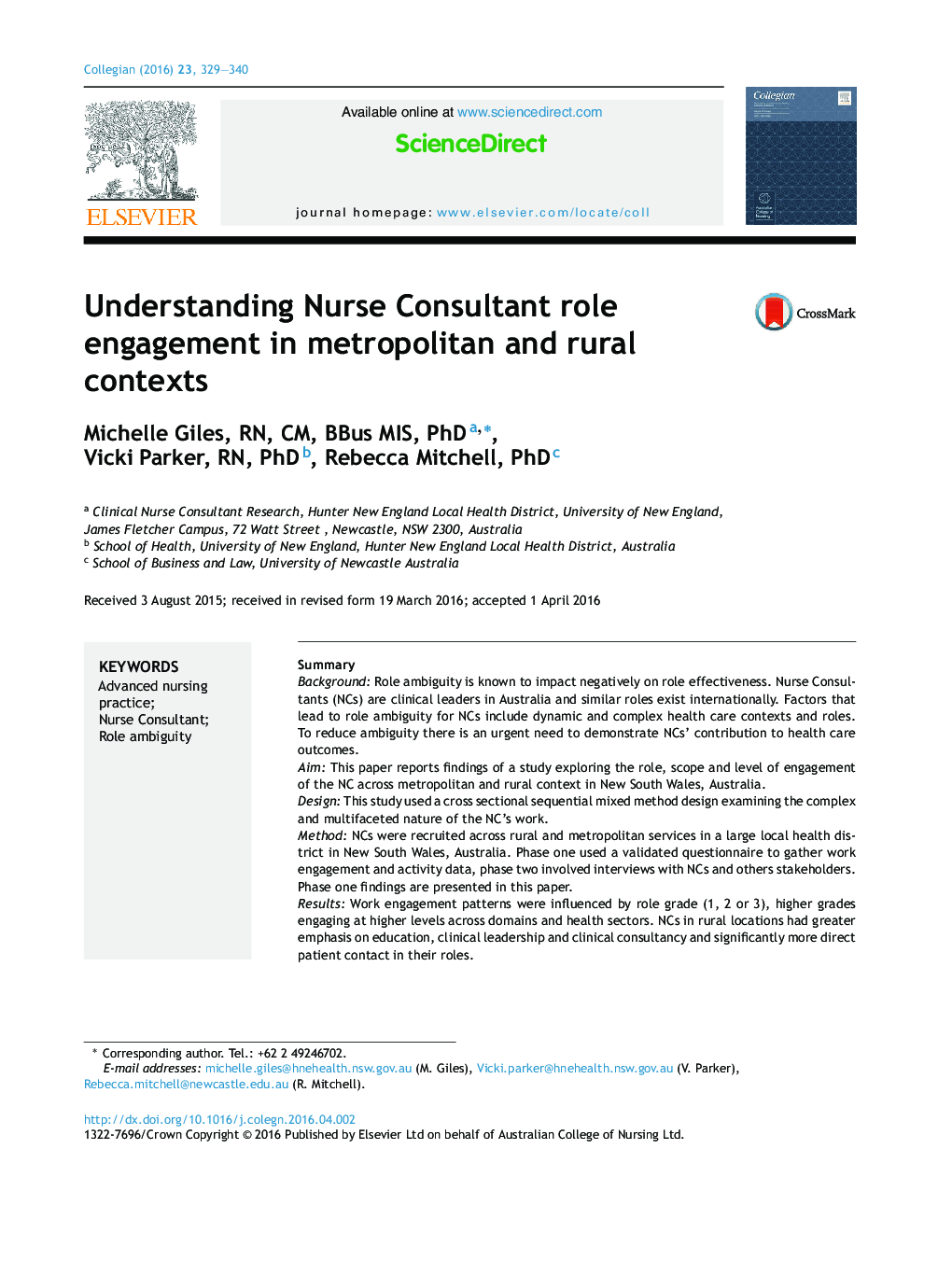| Article ID | Journal | Published Year | Pages | File Type |
|---|---|---|---|---|
| 5567612 | Collegian | 2016 | 12 Pages |
SummaryBackgroundRole ambiguity is known to impact negatively on role effectiveness. Nurse Consultants (NCs) are clinical leaders in Australia and similar roles exist internationally. Factors that lead to role ambiguity for NCs include dynamic and complex health care contexts and roles. To reduce ambiguity there is an urgent need to demonstrate NCs' contribution to health care outcomes.AimThis paper reports findings of a study exploring the role, scope and level of engagement of the NC across metropolitan and rural context in New South Wales, Australia.DesignThis study used a cross sectional sequential mixed method design examining the complex and multifaceted nature of the NC's work.MethodNCs were recruited across rural and metropolitan services in a large local health district in New South Wales, Australia. Phase one used a validated questionnaire to gather work engagement and activity data, phase two involved interviews with NCs and others stakeholders. Phase one findings are presented in this paper.ResultsWork engagement patterns were influenced by role grade (1, 2 or 3), higher grades engaging at higher levels across domains and health sectors. NCs in rural locations had greater emphasis on education, clinical leadership and clinical consultancy and significantly more direct patient contact in their roles.ConclusionNCs engage consistently across domains of practice, contributing across multiple health sectors with flexibility to fulfilling health service needs. Findings highlight the relevance of the role in meeting dynamic workplace needs for high level nursing expertise and inform role application, implementation and workforce planning initiatives.
